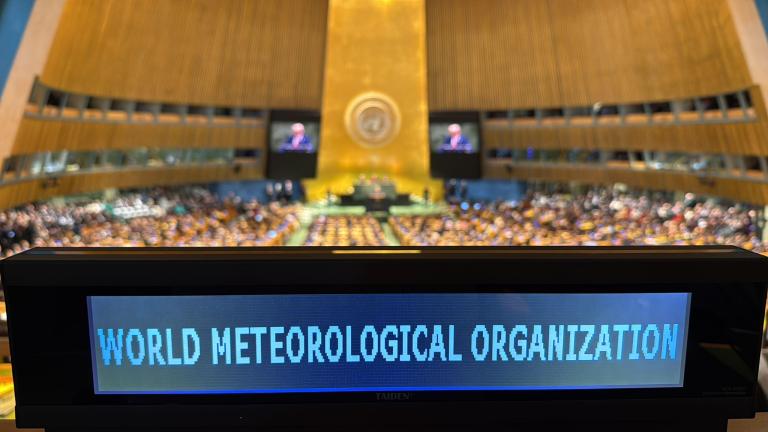UN Climate Summit takes place against a backdrop of extreme weather, underlining urgency of more ambitious climate action ahead of COP30 in Brazil.
Some 100 countries, including nearly 40 Heads of State and Government, have declared their commitment to new climate targets to try to rein in temperature increase.
The announcements came at a Climate Summit convened by UN Secretary-General António Guterres and President Luiz Inácio Lula da Silva of Brazil during the 80th session of the UN General Assembly and ahead of the decisive UN climate negotiations, COP30 , in the Amazonain city of Belém, Brazil this November.
For the first time, several major economies including China - the world's largest emitter - as well as Nigeria announced economy-wide emissions reduction targets covering all greenhouse gases and all sectors. Other nations detailed ambitious renewable energy goals, plans to curb methane emissions, strategies to safeguard forests, and measures to phase out fossil fuels.
"The science demands action. The law commands it. The economics compel it. And people are calling for it," declared the UN Secretary-General in his opening statement to the Climate Summit .
According to WMO, the past ten years have been the warmest on record and the global average temperature in 2024 temporarily exceeded 1.5°C above the pre-industrial era for the first time - the lower level of the Paris Agreement. The rising temperatures have been accompanied by more extreme weather, sea-level rise, ice melt and disruption to the water cycle.
"The Paris Agreement has made a difference," stressed Mr Guterres.
In the last ten years, projected global temperature rise has dropped from four degrees Celsius to less than three - if current climate action plans known as Nationally Determined Contributions are fully implemented, Mr Guterres said .
"Now, we need new plans for 2035 that go much further, and much faster," he said. He also called for a drastic increase in climate finance, and more support for developing countries for climate adaptation.

Accelerating Early Warning Solutions
The Early Warnings For All (EW4All) initiative , which is spearheaded by WMO and other partners, is a central tool in strengthening climate adaptation by protecting people against weather and environmental hazards.
Feeding into the Climate Summit were recommendations from a High-Level Solutions dialogue on Accelerating Early Warning and Extreme Heat Solutions, convened by the UN Climate Action Team, COP30 presidency, WMO and other EW4All sponsors. It brought together UN organizations, government ministers, mayors, philanthropic organizations, scientists and civil society.
At the Solutions Dialogue, WMO Secretary-General Celeste Saulo highlighted the need for increased financing, inclusive partnerships, technological innovation, and intentional action to protect vulnerable communities worldwide.
"We must scale up financing for early warning systems. This is not a cost but an investment," said Celeste Saulo.
"We must integrate early warning systems into all Nationally Determined Contributions and national adaptation plans, and we must strengthen cross-sector collaboration to reach the last mile to ensure no one is left behind," she said.
Bold Action
The Climate Summit is designed as a launchpad for COP30 with a clear mandate: parties to the Paris Agreement - the landmark 2015 pledge to climate change treaty - must bring forward new or updated NDCs (Nationally Determined Contributions, or pledges to take measures to address the climate crisis) that reflect "bold action for the next decade."
Under the Paris Agreement , governments are required to submit climate plans called Nationally Determined Contributions (NDCs) laying out bold action for the next decade.
Guterres has made it plain that existing pledges are nowhere near sufficient, and only a fraction of member states have up-to-date NDCs for 2025. Current national plans, according to the UNFCCC , would only cut global emissions by 2.6 per cent by 2030 compared to 2019 levels, a tiny fraction of the 43 per cent reduction that scientists say is needed to keep global temperatures to no more than 1.5 degrees Celsius above pre-industrial levels.
Mr Guterres stressed that COP30 "must conclude with a credible global response plan to get us on track" and outlined five crucial areas for action: accelerating the transition to clean energy, drastically cutting methane gas emissions, forest conservation, cutting emissions from heavy industry, and ensuring climate justice for developing nations.
UN News Article is here .






